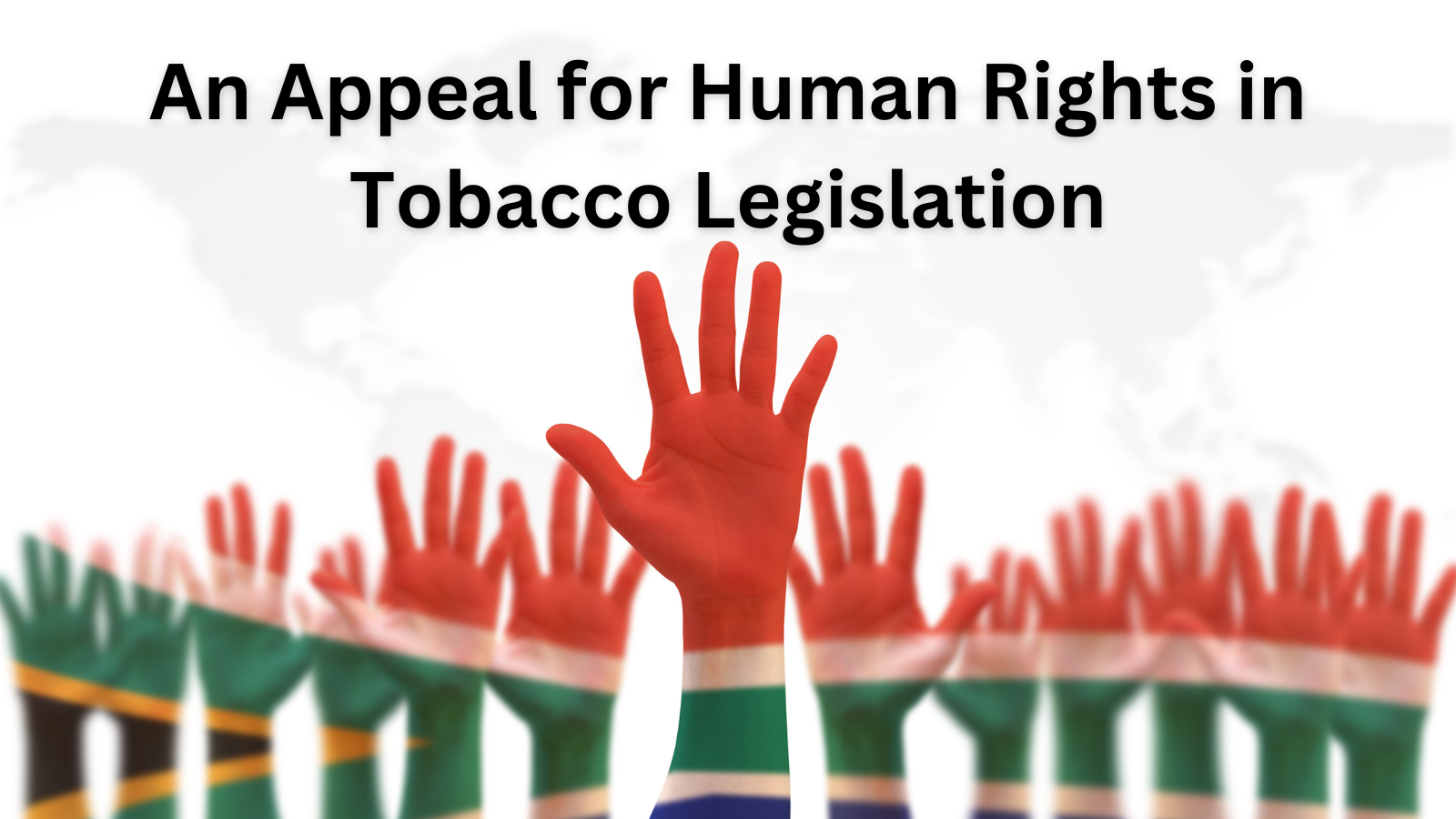In a recent public hearing, Dr Kgosi Letlape, an ophthalmologist and chairman of the Africa Harm Reduction Alliance (AHRA), spoke vehemently against the clauses within a bill on tobacco control in South Africa. Dr Letlape emphasises how the bill “does not differentiate between combustible cigarettes and alternative nicotine products” and creates a situation where human rights are unnecessarily and dangerously pit against public health.
The Heart of the Opposition
Three principal reasons serve as the significant bases from which Dr Letlape drew in standing to oppose the bill: each rooted in concerns over ethics, human dignity, and the right to informed choice.
1. The Blurring Lines Between Combustion and Non-Combustion
Firstly, Dr Letlape opposed the bill for inadequately distinguishing significantly harm-reduced products – that have the potential to save the lives of 10.4 million people who smoke in South Africa from tobacco – which will kill half of its consumers. This lack of distinction is troubling for medical professionals who, for decades, have recommended nicotine replacement therapy as a safer alternative to smoking. By classifying nicotine as a poison without the option for automatic appeal, this bill degrades the credibility of medical practitioners and undermines the importance of a harm reduction strategy.

2. Ignoring the Human Element
Second, the bill’s failure to recognise smokers as individuals deserving of attention and care was a serious concern. Dr Letlape said the bill made no provision for South Africa’s estimated 10.4 million adult smokers and offered no direction on where such people may smoke.
In doing so, the bill prioritises a more punitive orientation rather than adopting a support and education orientation. The person who smokes is represented as a violator, not a citizen with rights and needs.
3. A Lack of Support for Those Who Wish to Quit
The third issue raised by Dr Letlape concerns the bill’s neglect to provide pathways for smokers who desire to quit. He emphasised that the medical community’s role is to assist individuals with harmful behaviours, not to judge them. The proposed legislation, according to Letlape, leaves no room for educating nicotine users and potentially criminalises harm reduction advocacy—a move he finds ethically and morally unacceptable.
A Personal Plea for Compassionate Legislation
Dr Letlape’s appeal is both professional and personal, as it draws from his personal experience of having lost his father to a smoking-related illness and the reality of having dependents who smoke. This brings the truth of the situation closer to home. Dr Letlape stresses the importance of not transforming homes into crime scenes by criminalising addiction or dependence but by being more supportive and recognising it as a human issue.
The Call for a Balanced Approach
Dr Letlape’s critique culminates in a call for a legislative framework that accurately reflects the advancements in nicotine delivery technologies. Such a framework should be able to distinguish the risk continuum and recognise the difference between combustion and non-combustion. It should regulate and provide safer alternatives for people unable to quit. He also mentions the need to reduce the availability of illicit cigarettes, both physically and in terms of affordability, and how smoking disproportionately burdens vulnerable populations in poor communities and people with mental illness.
Conclusion: A Plea for Human Rights in Public Health Legislation
Dr Kgosi Letlape’s opposition to the bill is a poignant reminder of the need to balance public health goals with human rights considerations. Legislation that fails to differentiate between harmful and less harmful practices, that overlooks the human aspect of addiction, and that criminalises rather than supports individuals in their journey towards healthier choices is fundamentally flawed. As society advances, so must our approach to legislation, ensuring that it is inclusive, compassionate, and respectful of individual rights and dignity.
THR Topics
Popular Posts
Quick Links
Women in THR
Related Posts
 Letter to the World Health Organization (WHO)
Letter to the World Health Organization (WHO)
Letter to the World Health Organization (WHO)
 Public Health implications of vaping in Germany
Public Health implications of vaping in Germany
Public Health implications of vaping in Germany
 Public Health implications of vaping in the United States of America
Public Health implications of vaping in the United States of America








